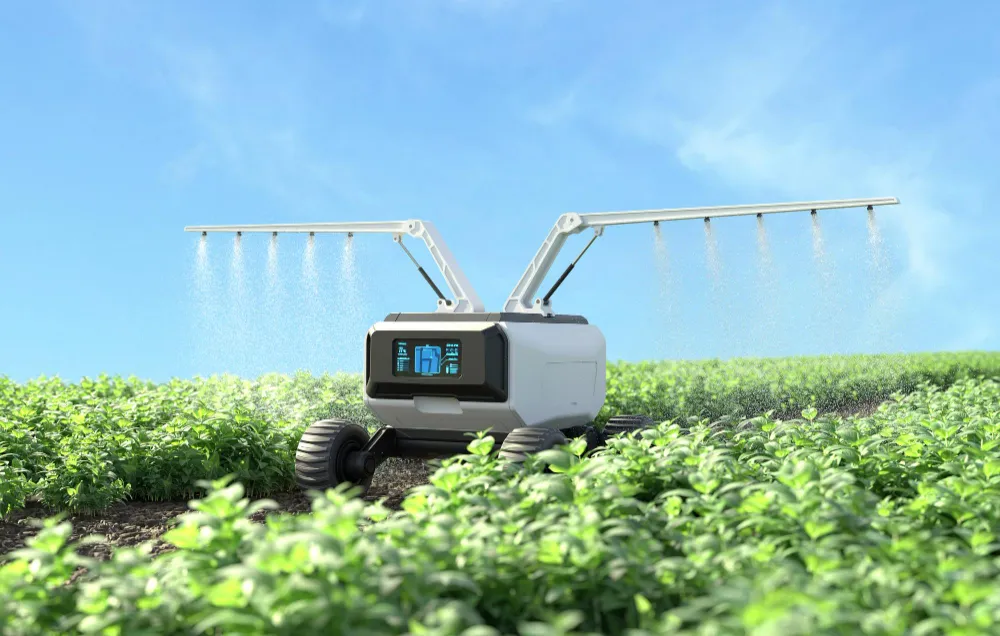Farming has always been essential to human survival, but with a growing population and limited resources, traditional methods no longer meet the world’s demands.
Managed farmland has become a modern solution, where advanced technologies ensure farming is efficient, sustainable, and productive. In this article, we’ll explore the top 10 technological advances in managed farmland that are revolutionizing agriculture, making it smarter and better for both people and the planet.
With the support of Sanjeevani Farms, a leading provider of managed farmland in Bangalore, you’ll receive expert guidance in adopting the latest technological advances in agriculture.
What is Managed Farmland?
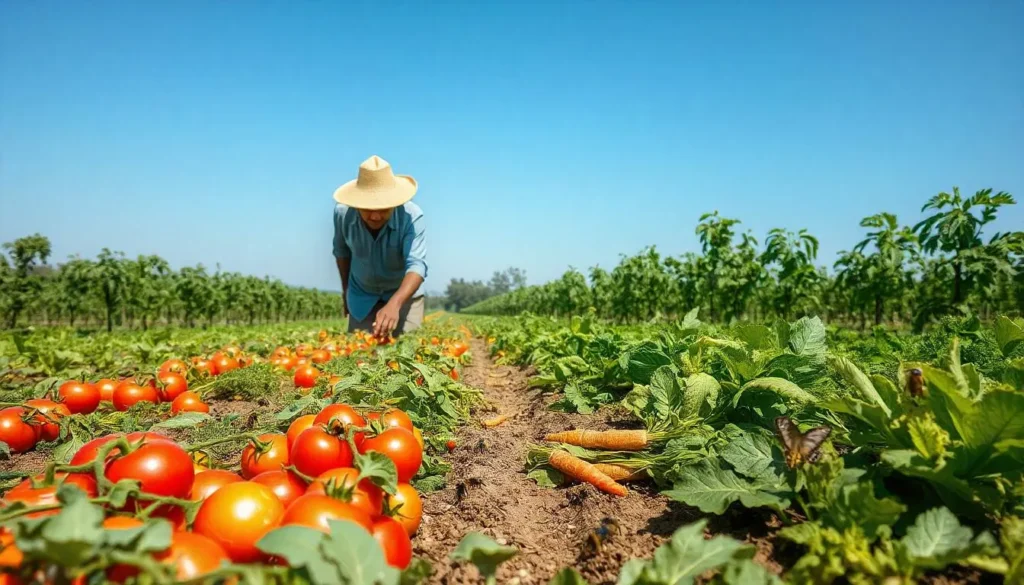
Managed farmland refers to agricultural land where farmers use technology, data, and structured management practices to maximize output and efficiency. Unlike traditional farming that relies on manual labor and basic tools, managed farmland integrates modern science and technology.
By optimizing water, soil, and crop management, technological advances in managed farmland help reduce waste and ensure sustainable farming practices.
Why Traditional Farming Faces Challenges
Before diving into the benefits of technology, let’s look at some common issues with traditional farming:
- Unpredictable Weather: Farmers rely on weather patterns, but climate change has made it harder to predict seasons.
- Resource Wastage: Water, fertilizers, and pesticides are often used inefficiently, leading to waste and pollution.
- Labor Shortages: Farming is physically demanding, and fewer people are choosing it as a career.
These challenges make it clear why technological advances in managed farmland are so important.
Top 10 Technological Advances in Managed Farmland in 2024
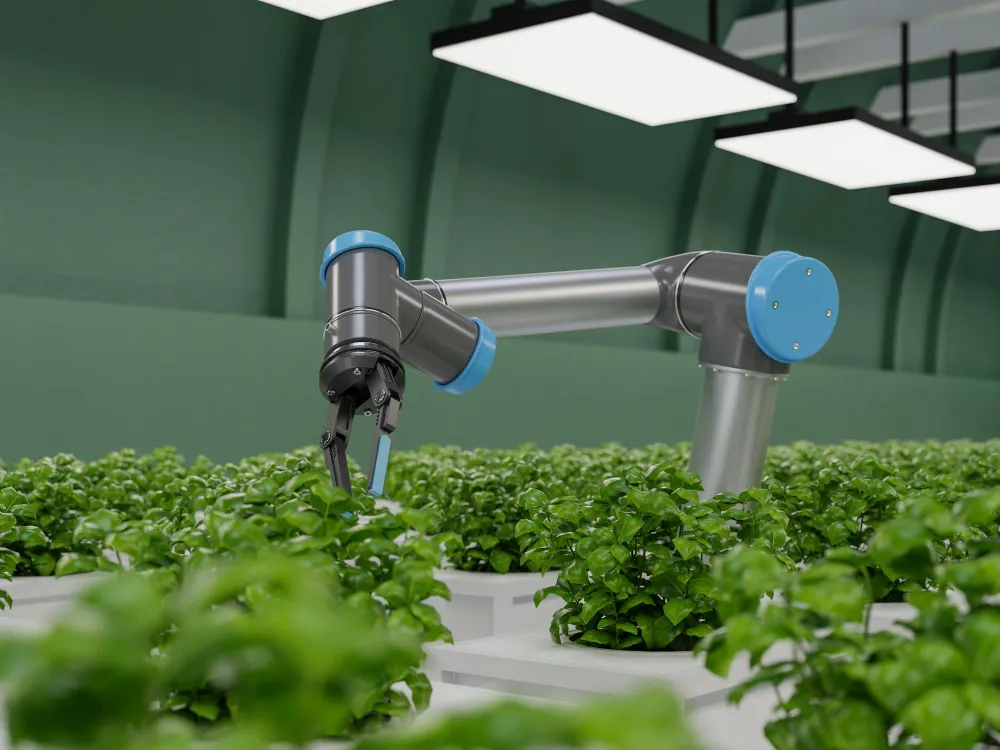
Farming has become more than just tilling the land and planting seeds. With the rapid development of technology, managed farmland in 2024 has undergone a revolution.
Below are the top 10 technological advances in managed farmland that are making a significant impact on agricultural productivity and sustainability.
Precision Agriculture
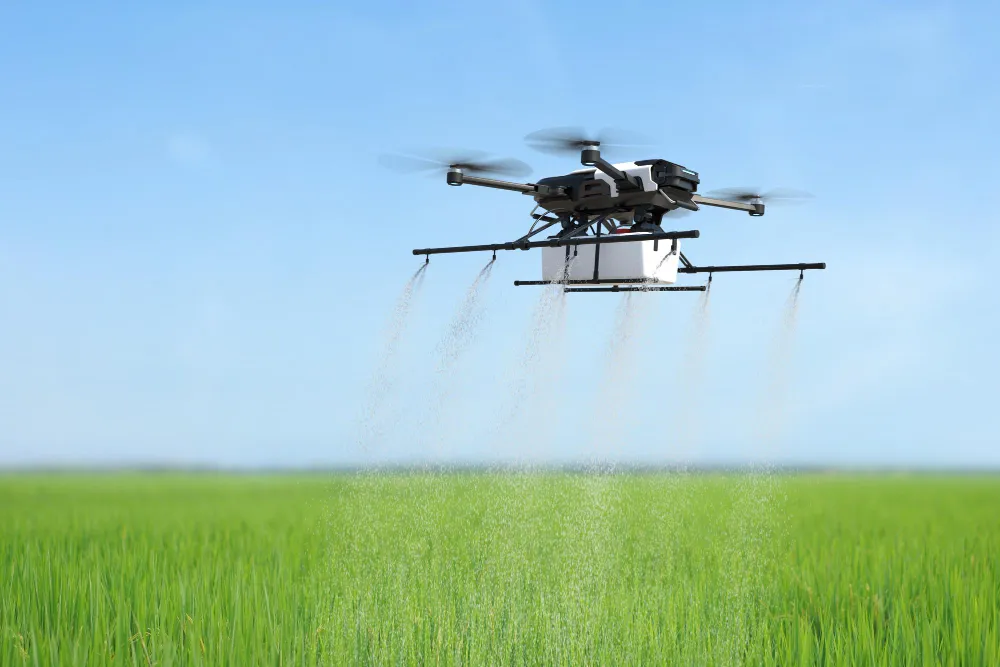
Precision agriculture has transformed farming into a data-driven activity where every action is calculated for maximum efficiency.
- GPS and Mapping: Advanced GPS systems allow farmers to map their fields with incredible accuracy. This helps determine the best locations for planting, irrigating, and fertilizing. For instance, uneven terrain or nutrient-deficient areas can be flagged for specialized treatment, minimizing resource waste.
- Soil Sensors: Sensors embedded in the soil collect real-time data on moisture levels, pH, and nutrient content. Farmers can act immediately on this data to improve crop health, ensuring that every plant gets exactly what it needs.
- Drones: Aerial drones equipped with cameras and sensors monitor large areas of farmland in minutes. They can detect early signs of pests, diseases, or water stress, allowing farmers to intervene before problems escalate.
Precision agriculture is one of the top technological advances in managed farmland that minimizes environmental impact while maximizing productivity.
Automation and Robotics
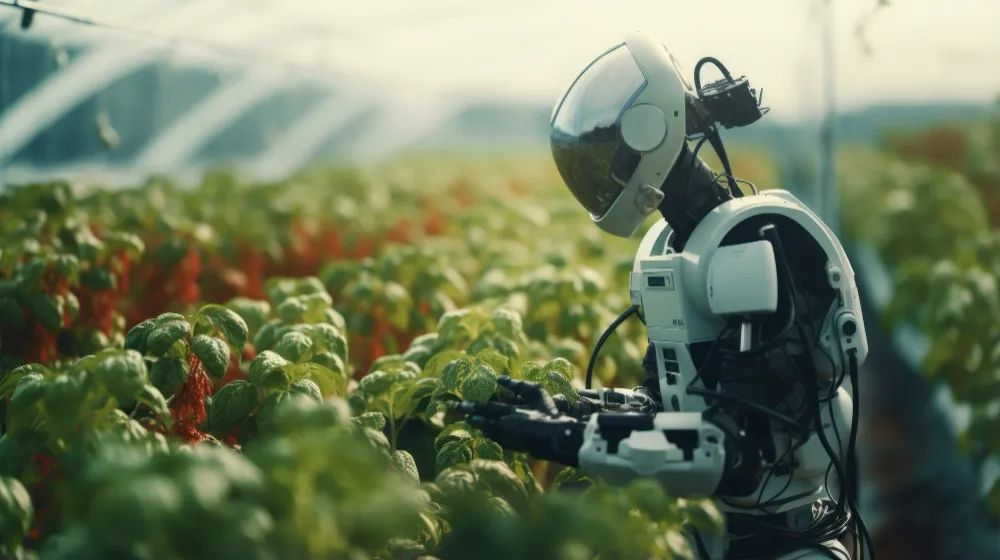
The integration of automation in farming has made many labor-intensive tasks faster, more precise, and less costly.
- Robotic Harvesters: Machines now pick fruits, vegetables, and grains with remarkable speed and accuracy. These robots not only reduce manual labor but also minimize food waste by harvesting crops at their optimal ripeness.
- Smart Irrigation Systems: These systems rely on real-time weather and soil data to decide when and how much to water. By delivering water directly to the roots, they save water and improve crop quality.
By integrating automation, farmers can focus more on strategic decisions rather than day-to-day manual tasks, a key example of the technological advances in managed farmland.
Data Analytics and Artificial Intelligence (AI)
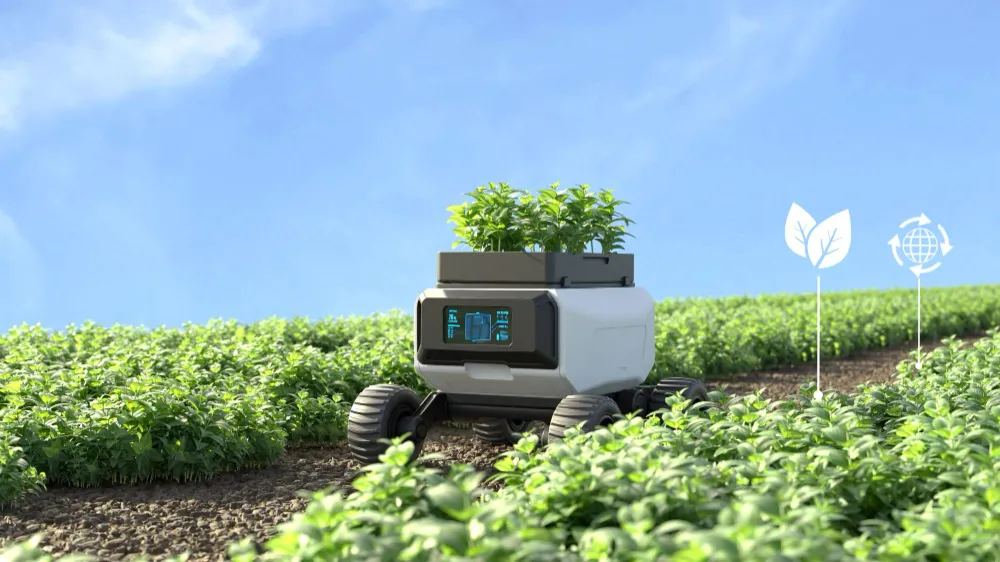
AI and data analytics are making farming a science-driven profession where every decision is backed by data.
- Predicting Crop Yields: AI systems analyze data from weather forecasts, soil conditions, and historical harvest records to predict crop yields. This allows farmers to plan better and manage their supply chain more efficiently.
- AI-Powered Pest Control: Pest management is another area where AI is excelling. By analyzing patterns in pest behavior and crop health, AI systems can recommend targeted treatments, reducing the need for widespread pesticide application.
- Customized Recommendations: Advanced algorithms provide tailored solutions for each farm, considering variables like crop type, location, and past performance.
AI ensures that farming is not only productive but also sustainable by reducing unnecessary inputs.
Biotechnology and Genetic Advancements
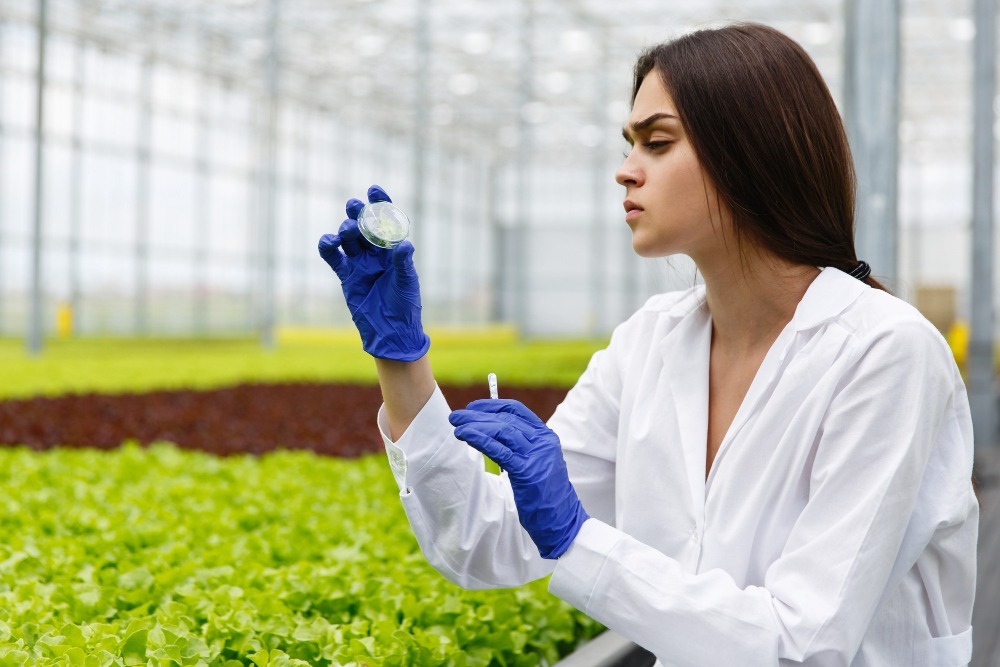
Biotechnology has unlocked new possibilities for improving crop quality, yield, and resilience to environmental challenges.
- Genetically Modified Crops (GMOs): GMOs have been developed to resist pests, tolerate drought, and withstand extreme weather conditions. These crops significantly reduce losses and improve food security.
- CRISPR Gene Editing: This precise genetic engineering tool is being used to enhance crop traits, such as disease resistance or faster growth, without introducing foreign DNA.
- Soil Microbes: Scientists are engineering beneficial soil microbes that naturally improve nutrient availability for plants. These microbes can reduce the need for chemical fertilizers, promoting sustainable farming.
Biotechnology is essential for improving yields, resilience, and sustainability, representing one of the key technological advances in managed farmland today.
IoT-Enabled Smart Farming

The Internet of Things (IoT) is connecting farm devices, enabling seamless communication and real-time monitoring.
- IoT Sensors: These sensors track everything from soil moisture and weather conditions to livestock health. For example, a network of sensors can alert farmers about specific areas in need of irrigation or pest control.
- Remote Control Systems: IoT allows farmers to control equipment like irrigation systems or climate controls in greenhouses remotely using their smartphones or computers.
IoT technology plays a significant role as one of the most effective technological advances in managed farmland, providing farmers with actionable data and control at their fingertips.
Vertical Farming Technologies
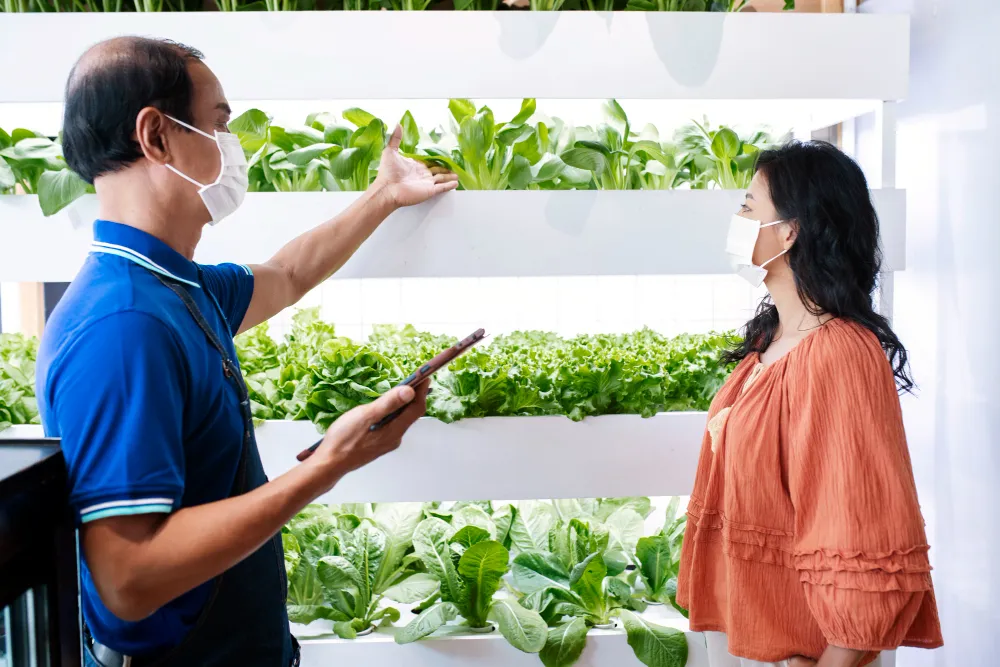
In urban and land-scarce regions, vertical farming is emerging as a game-changer.
- Controlled Environments: By growing crops in vertically stacked layers within controlled environments, farms can produce food year-round without being affected by weather conditions.
- Efficient Resource Use: Vertical farms use up to 90% less water compared to traditional farming. LED lighting and nutrient recycling systems further reduce waste.
Vertical farming represents a revolutionary method among technological advances in managed farmland, providing a solution for food production in urban areas.
Blockchain for Farm-to-Table Transparency
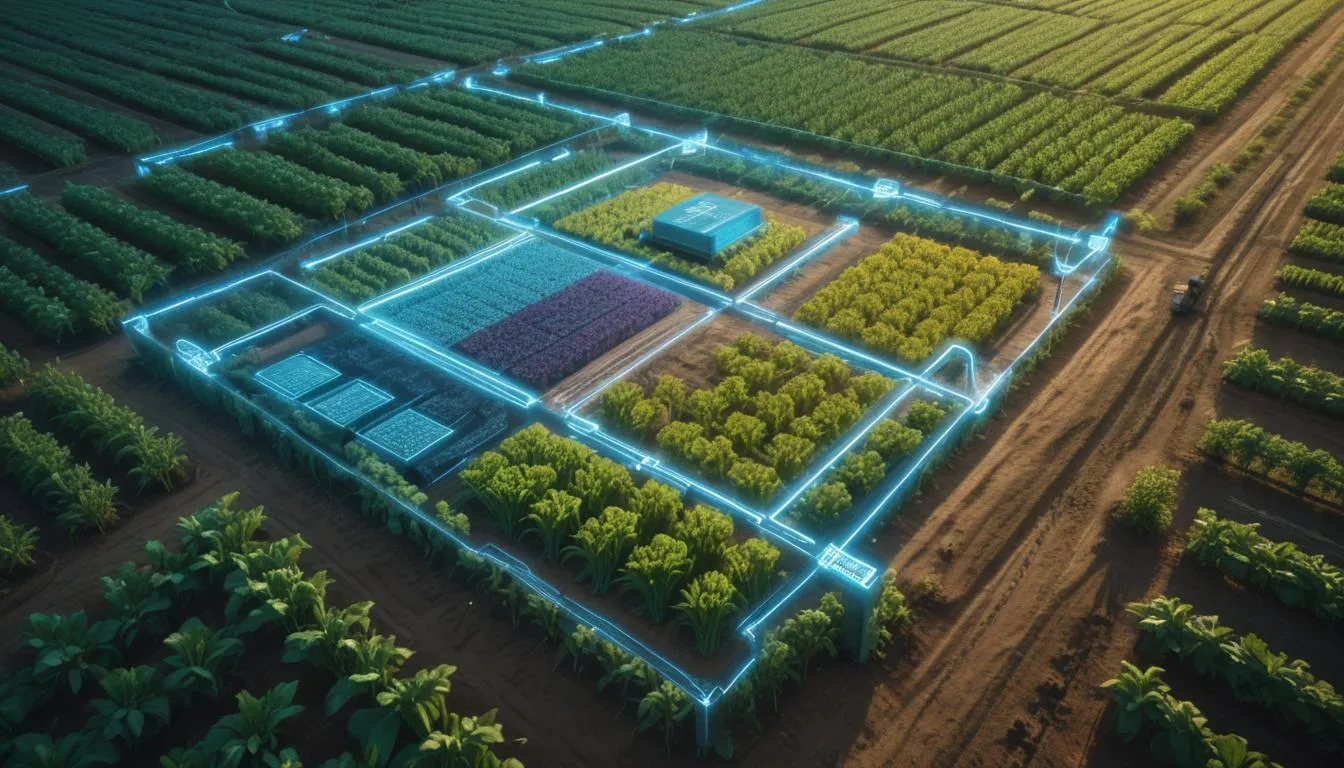
Consumers today demand transparency about the food they eat. Blockchain technology is fulfilling this need by providing a secure, traceable record of every stage of the supply chain.
- Authenticity Verification: Blockchain ensures that food is ethically sourced and meets safety standards.
- Fair Pricing: It helps farmers get fair prices by eliminating middlemen and ensuring direct communication with buyers.
With blockchain, trust and accountability in agriculture are improving.
Renewable Energy Integration
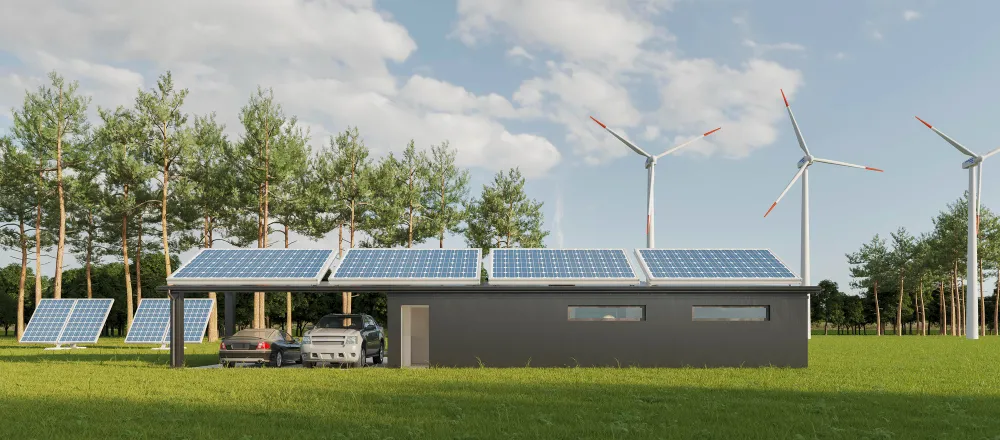
Sustainable energy sources like solar and wind are becoming integral to modern farms.
- Solar-Powered Equipment: Farms are using solar panels to power machinery, irrigation systems, and storage facilities.
- Wind Energy: Wind turbines provide an additional renewable energy source for farms located in windy regions.
By adopting renewable energy, farms are reducing their reliance on fossil fuels and cutting operational costs, all part of technological advances in managed farmland.
Smart Greenhouses
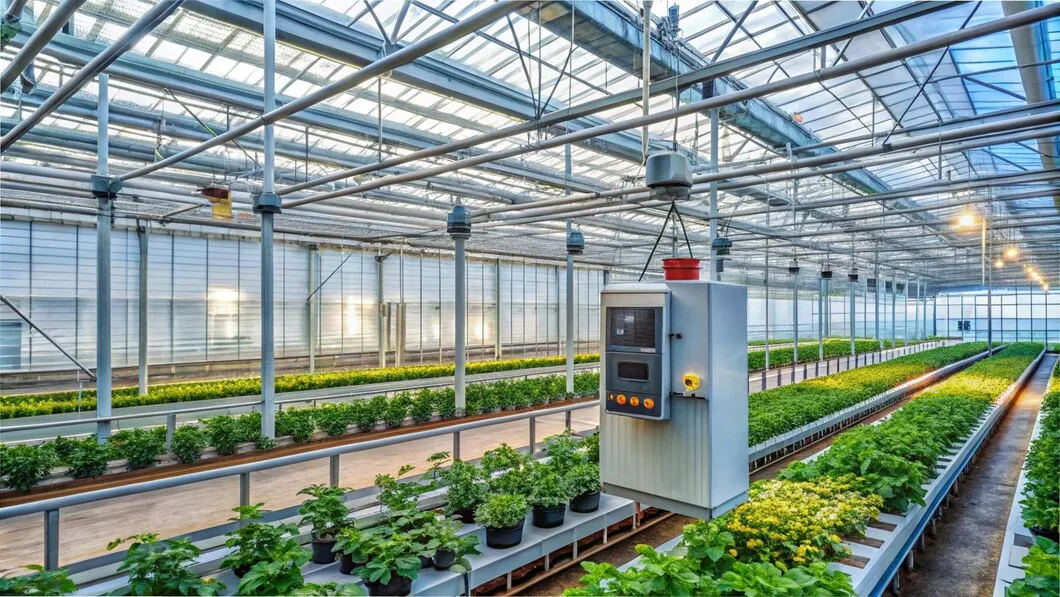
Smart greenhouses are equipped with advanced technologies to optimize plant growth.
- Automated Climate Control: Systems adjust temperature, humidity, and light levels based on crop needs.
- Water Recycling: These greenhouses reuse water efficiently, cutting down on waste.
Smart greenhouses allow year-round farming and protect crops from unpredictable weather.
Automated Livestock Management
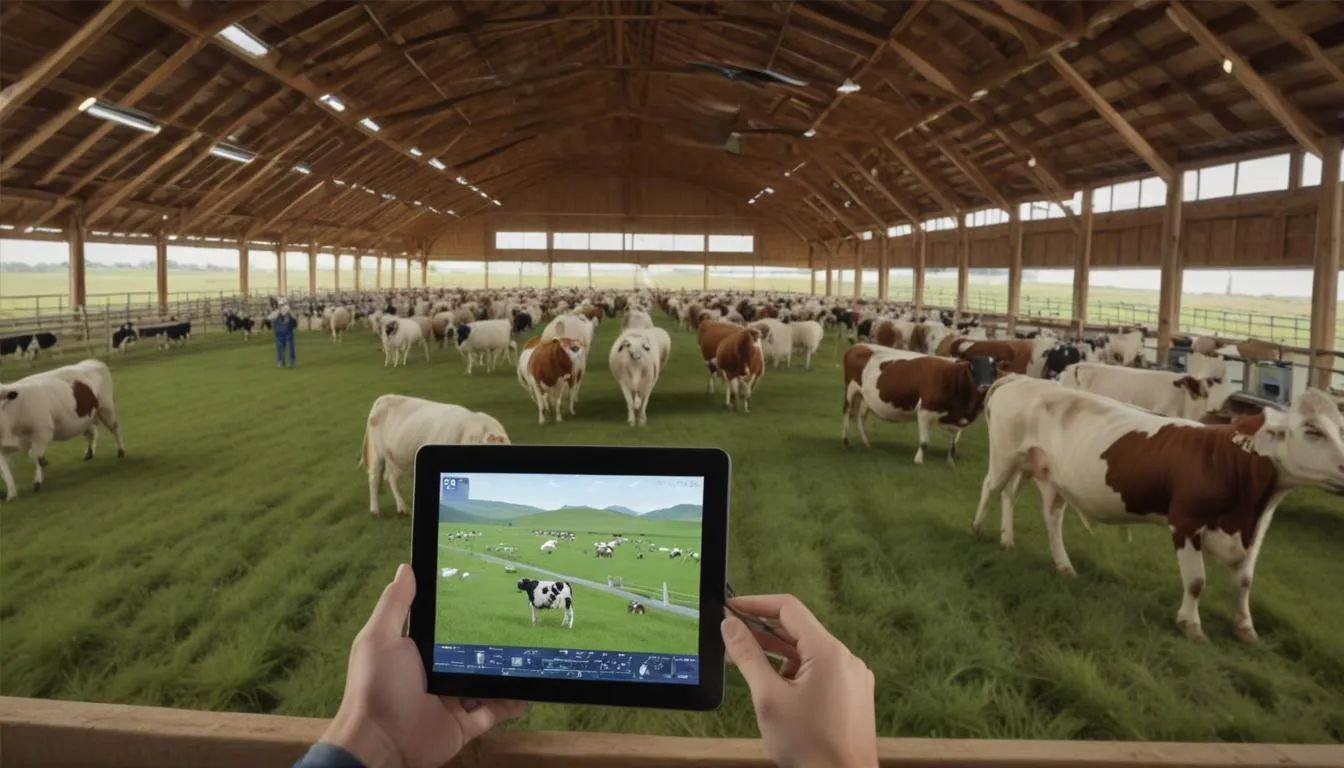
For farms managing livestock, technology is ensuring better animal welfare and productivity.
- Wearable Sensors: Devices attached to animals monitor health, activity, and location. Early warnings about illness or stress can help farmers take preventive measures.
- Feeding Robots: Automated feeders deliver precise amounts of feed, reducing waste and ensuring animals receive optimal nutrition.
Livestock management systems streamline operations while improving animal health and farm profitability.
How Technology Makes Farming Sustainable

Technological advances in managed farmland are playing a major role in making farming more sustainable.
Here’s how:
- Reducing Environmental Impact: Smart tools like precision farming reduce the overuse of water, pesticides, and fertilizers, helping conserve natural resources and reduce pollution.
- Improving Water Use: Smart irrigation systems powered by sensors ensure crops get only the water they need, preventing waste and conserving water.
- Protecting Biodiversity: Technologies like crop rotation and pest management reduce the need for harmful chemicals, helping maintain biodiversity and soil health.
- Reducing Carbon Footprint: Renewable energy sources, such as solar-powered irrigation systems and electric tractors, help reduce the carbon emissions associated with farming.
- Minimizing Soil Erosion: Using precision tools and no-till farming methods helps preserve soil structure, preventing erosion and maintaining long-term soil health.
- Improving Crop Resilience: Advancements like drought-resistant crops and better soil management techniques make crops more resilient to extreme weather conditions, supporting sustainable growth.
- Waste Reduction: Technology helps in reducing food waste through better storage, sorting, and harvesting techniques, making farming more efficient and environmentally friendly.
- Energy Efficiency: Automated farming tools and energy-efficient machinery reduce energy consumption, making farms more sustainable and less reliant on non-renewable energy sources.
Economic Benefits of Technological Advances in Managed Farmland
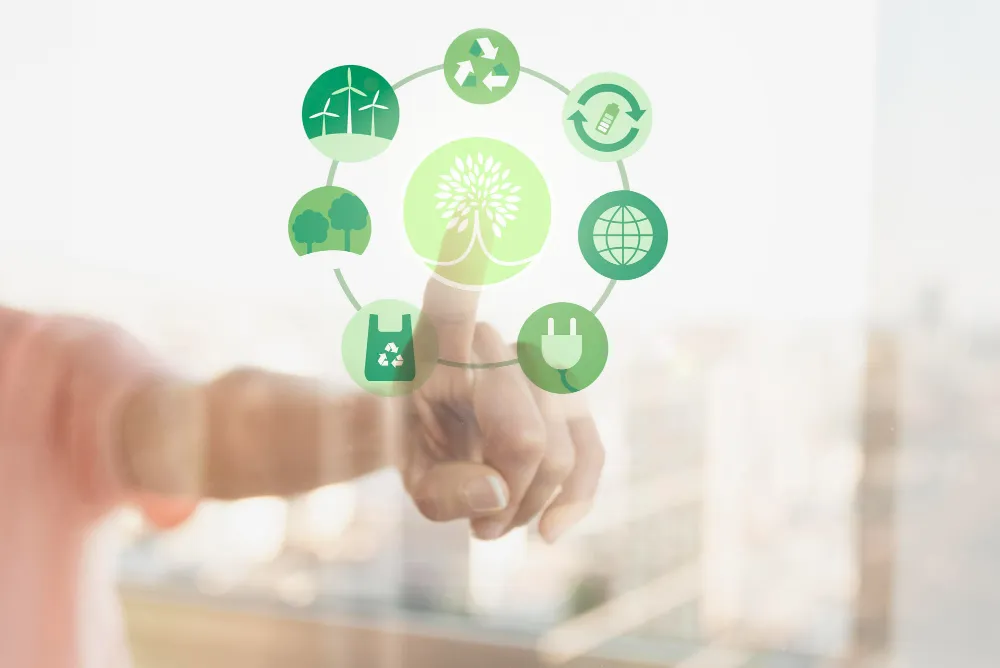
Technology in farming offers significant economic advantages, benefiting both farmers and the broader food system.
Here are some of the key economic benefits:
- Lower Costs for Farmers: Automated farming systems and precision tools help farmers reduce labor and resource costs, making farming more affordable and profitable.
- New Job Opportunities: As technology integrates into agriculture, there’s a growing demand for skilled workers in fields like robotics, AI, and data analysis, opening up new job opportunities.
- Global Food Security: By increasing crop yields and optimizing land use, technology helps meet the growing demand for food, playing a key role in global food security.
- Increased Yield and Reduced Waste: Real-time data from sensors and automated systems allow farmers to adjust practices for optimal yields and reduce waste from spoiled or excess produce.
- Boosting Farm Profitability: AI-driven analytics, predictive models, and efficient resource use increase farm profitability, helping farmers plan better and reduce financial risks.
- Improved Market Access: With technology, farmers can access global markets more easily through better logistics, online platforms, and accurate forecasting, expanding their customer base.
- Improved Supply Chain Efficiency: Automation and real-time tracking streamline the supply chain, reducing delays, waste, and costs, ensuring fresh produce reaches the market faster.
- Diversification of Income Streams: Farmers can use technology to diversify their crops, livestock, and even explore alternative farming methods, boosting overall revenue and reducing risks associated with monoculture farming.
Conclusion
The technological advances in managed farmland in 2024 are transforming agriculture into a highly efficient, sustainable, and innovative industry. From precision agriculture and robotics to AI-powered solutions and biotechnology, these advancements are addressing the challenges of climate change, resource scarcity, and food security. By embracing these technologies, farmers are not only improving productivity but also paving the way for a more sustainable future.
If you want to invest in the future of agriculture and support sustainable farming, choose SilverWoods Managed Farmland near Bangalore by Sanjeevani Farms. We offer the perfect opportunity with cutting-edge technologies for eco-friendly, efficient, and profitable farming. By investing with us, you contribute to a sustainable farming ecosystem and enjoy the potential returns on your investment.
For more information or to get started with your investment, feel free to contact us today!
FAQs
Here are the top frequently asked questions about the key technological advances in managed farmland for 2024.
What are the top technological advances in managed farmland for 2024?
In 2024, the top technological advances include precision agriculture, AI-driven pest control, robotics, drone monitoring, smart irrigation systems, and biotechnology innovations to enhance crop yield and sustainability.
How does AI improve farming in 2024?
AI analyzes farming data, predicting crop yields, optimizing water use, and detecting pests early. It helps farmers make data-driven decisions, boosting productivity and sustainability on managed farmland.
What role do drones play in modern farming?
Drones provide aerial views of farmland, detecting pests, monitoring crop health, and gathering data on soil conditions. This helps farmers respond quickly to potential issues and manage crops more effectively.
How do precision agriculture tools enhance productivity?
Precision agriculture tools use GPS and sensors to optimize planting, irrigation, and fertilization. These technologies minimize resource waste and improve crop management, leading to higher yields and reduced environmental impact.
Why are robotics important for managed farmland?
Robotics automate tasks like harvesting and planting, reducing labor costs and increasing efficiency. Robotic systems can work around the clock, ensuring better productivity while minimizing human error and resource use.
What are the key benefits of technological advances in managed farmland?
Technological advances in managed farmland improve efficiency, increase crop yields, reduce resource wastage, and enhance sustainability. They help farmers optimize water usage, control pests, and boost overall farm productivity.

